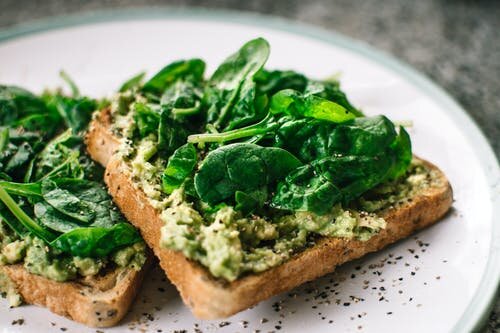Mental health, Wellbeing, Gut Health and Nourishment.
Mental health made news headlines again last month! The ABC, (November 2020), reported ¾ of people with mental illness first experience their symptoms before the age of 25. In addition, the financial cost of mental health on the government, is an estimated 220 billion dollars a year.
The World Health Organisation (WHO) 2013, states, for all people, mental, physical, and social health is vital and interwoven in all aspects of life. Additionally, mental health is pivotal in the wellbeing of individuals, societies, and countries. Unfortunately, though mental health and mental disorders are not granted anywhere near the same degree of importance as physical health. Despite this, there is a slight increase in the recognition and treatment of anxiety and depression. But new data from around the world suggest that rates of mental illness, in particular for young people, may be increasing rather than decreasing (Food and Mood Centre, 2020).
So, what is Mental Health and why is it important?
Mental health is a state of wellbeing that comprises of emotional, psychological, and social cues that can affect how we think, feel, and behave. Mental health navigates how we handle everyday stresses, how we relate to others, and can impact our everyday decisions. In addition, mental health is as important as nutrition and exercise and starts from the day you are born, right through the course of your life.
What influences Mental Health?
A combination of biopsychosocial factors can affect your mental health. For example, individual factors like resilience, self-love and self-confidence can be a protective factor and define characteristics that can help decrease the risk of developing a mental illness; Structural factors like traumatic experiences, economic situations, and education; And community factors like belonging and community connectedness. In addition, the environment of how and where we live, and what we are exposed to, is particularly important especially in the early years of life.
While there may be a psychological or emotional component to mental illness, we can still do a lot to help and improve our mental health issues with nutrition.
Food for thought!
Whilst we acknowledge that there are many facets to mental wellbeing, we can certainly make a conscious contribution to one component, to help and improve our mental health issues, with nutrition. For example, packaged and fast foods are depleting our brains and bodies of fundamental nutrients to support good brain health. However, by balancing our nutrition and feeding our gut microbiome you can start to make a positive difference and address mental wellbeing. This is because our digestive system is where a majority of our brain cells live and where nutrients are absorbed and created.
The role that digestion plays in mental health.
We have brain cells in our gut which play an important part in producing the neurotransmitters that get sent to the brain. For example, have you ever just “gone with your gut instinct” or felt butterflies in your stomach when you were feeling anxious or nervous? These signals are coming from your second brain, the one found in the lining of your digestive system and apparently there are more brain cells found there, then in the brain itself. However, if our guts are not working well such as IBS, constipation, diarrhoea, and or we are not feeding our gut with the good nutrition it requires, our mental health starts to take a beating. Scientists call this second brain the enteric nervous system (ENS).
The ENS is a complex system that is entirely orchestrated independent of the central nervous system (CNS). The CNS is the part of the nervous system consisting primarily of the brain and spinal cord.
The ENS is essential for life and increasing evidence suggests that the ENS plays a significant role in neurochemistry.
You can watch a short video here on How your Digestive system works-Ted Ed.
The chemistry of food for the brain.
There is a direct relationship between the nutrients we consume and how the body uses that nutrients to produce neurotransmitters for the brain. For example, GABA, Serotonin, Norepinephrine, Endorphins, and Dopamine. These neurotransmitters in general help produce the depth of our emotions and are responsible for our moods, thoughts, and feelings. Additionally, how angry we get, our problem-solving skills, our energy levels, motivation, and input levels we feel are all dependant on our neurotransmitters. Furthermore, neurotransmitters can also affect the decisions we make about the food we consume, if we exercise, if we can relax and how we handle everyday stress. Additionally, the consumption of vitamins, minerals, amino acids, essential fatty acids, and enzymes, impact the body’s capability of making these neurotransmitters. Thus, if we lack these nutrients in our diet as of poor food choices, we are unable to produce the necessary proteins and neurotransmitters we need, which can ultimately lead down the path of depression, anxiety, mood swings, hyperactivity and anger.
So, to put it simply, if we consume fast and processed foods all the time, this can be a trigger and increase the risk of developing anxiety and depression. Our good gut bacteria may be starving and so they don’t produce enough of the feel-good neurotransmitters, hence this effects our emotions and motivation, so in turn we may grab unhealthy food to satisfy our needs and or to boost our energy levels but also to make us feel better, thus the cycle continues……..
So, what can we do to improve our nutrition for brain health?
The things that you can do now include increasing your fruit and vegetable intake along with, grains, fish, lean red meats, and olive oils. These are all rich in important nutrients such as folate, magnesium, vitamins and zinc and all impact on body and brain functions, including mood regulation. Remember “You are what you eat”
Foods for your mental health
1. Fish
Fish is a brain food. Why? Because fish especially oily fish like salmon, trout, tuna, prawns, mackerel are rich in omega-3 fatty acids whether they are fresh, frozen, or canned.
Docosahexaenoic acid (DHA) is an Omega-3 fatty acid found in oily fish, which helps improve memory, contributing to optimal brain health. Additionally, a diet high in Omega 3 fatty acids can also help to boost feelings of mental health and wellness and reduce levels of anxiety.
2. Walnuts
Ever seen a walnut and thought, hey! they look like a miniature brain? Maybe that's natures way of reminding us of the benefits of walnuts.
Walnuts are great for a snack with the added benefit of supporting your long-term brain health. Why?
Walnuts contain amazing antioxidants, helping to inhibit oxidation in the brain and body. Even more surprisingly, these nuts can also lead to the growth of new neurons – basically, meaning walnuts can help us to grow new brain cells, an essential aspect of maintaining good mental health.
3. Wholegrains
Ever eliminated carbs from the diet and wondered why you were feeling angry?
Wholegrains are a rich source of tryptophan, an amino acid that helps to produce serotonin, (the ‘feel good hormone’). Serotonin assists in calming the mind, improving your mood, and maintaining a steady sleep cycle.
4. Berries
Why are berries so important? Berries such as, strawberries, raspberries, blackberries, blueberries, elderberries are rich in antioxidants. Antioxidants assist in repairing damaged cells, as well as combating inflammation caused by free radical damage. By reducing the damage caused by free radicals these antioxidants have also been found to assist in improving symptoms associated with anxiety and depression.
5. Yoghurt
Yoghurt contains beneficial probiotics that help your digestive system to run smoothly, however like mentioned within this blog, recent research has stated that as of the brain-gut connection, probiotics found in cultures such as yoghurt can also impact a person’s mental health, assisting in lowering levels of stress, anxiety and depression.
6. Green Leafy vegetables.
Leafy Greens can be added to half your plate with every meal for better health in weight and wellbeing. But why are they so good?
Green leafy vegetables contain, lutein, vitamin K, nitrate, folate, alpha-tocopherol, beta-carotene, and kaempferol, which are associated with cognitive health.
In addition, a study published in Neurology Jan 2018, found people who regularly consumed at least one daily serving of leafy greens such as spinach, kale and collard greens, had slower rate of cognitive decline compared to those who did not, keeping their brains sharp and focussed.
7. Beans
“Beans Beans the musical fruit, the more you eat the more you toot”
But did you know that consuming beans are also one of the top food choices for a happy, healthy brain? Why because beans and legumes, like chickpeas, lentils, kidney, and butter beans are full of fibre and antioxidants and they keep you feeling fuller for longer. Simply meaning they keep your blood sugar stable and enable you to burn more energy. Which in turn is also good for your mental health. In addition, beans also contain thiamine, a vitamin needed for the production of acetylcholine the neurotransmitter essential for memory. So, make sure you include beans into your diet weekly for a healthy brain.
8. Turmeric the yellow spice found in most Indian foods is a key ingredient in curry powder and has a number of benefits for the brain. Why?
Curcumin, the active ingredient found in turmeric can cross the blood-brain barrier. This means it can directly enter the brain and benefit the cells there. With its potent antioxidant and anti-inflammatory compound, it has been linked to the following brain benefits:
Improve memory: Curcumin may help improve memory in people with Alzheimer’s.
Reduce and ease depression symptoms: Curcumin boosts serotonin and dopamine, which both improve mood.
Helps new brain cells grow: Curcumin boosts brain-derived neurotrophic factor, a type of growth hormone that helps brain cells grow.
To reap the benefits of curcumin when using fresh turmeric in food, you need to add a fat, in the form of dairy or an oil and add black pepper. You can add turmeric to curries, potato dishes, pastas sauces, soups and lately the trend has been in tea or coffee. You can read more about turmeric here
Now do you require further information. You can contact me here or send me a message in messenger. And don’t forget you can also follow me on Facebook and or Instagram.
References:
Australia & New Zealand Mental Health Association. (2018). 7 Foods to Improve Your Mental Health and Wellness. Retrieved from https://anzmh.asn.au/mental-health/foods-mental-health-wellness/
Bremner, J.D.; Moazzami, K.; Wittbrodt, M.T.; Nye, J.A.; Lima, B.B.; Gillespie, C.F.; Rapaport, M.H.; Pearce, B.D.; Shah, A.J.; Vaccarino, V. Diet, Stress and Mental Health. Nutrients 2020, 12, 2428
Carter, A. (n.d) Gut Health and Pain – Part 1: Know Your Gut. Retrieved from https://www.northernpaincentre.com.au/wellness/gut-health-and-pain-part-1-know-your-gut/
Hoogstad, N. (2019). Food and mood: mental health and diet. Retrieved from https://gutsybynutrition.com.au/gutsy-by-nutrition-blog/2018/12/30/food-is-mood-mental-health-and-diet
Logan, A. C., & Jacka, F. N. (2014). Nutritional psychiatry research: an emerging discipline and its intersection with global urbanization, environmental challenges and the evolutionary mismatch. Journal of physiological anthropology, 33(1), 22. https://doi.org/10.1186/1880-6805-33-22
Malcolm, L. & Willis, D. (2015) Why the digestive system and its bacteria are a 'second brain' retrieved from https://www.abc.net.au/radionational/programs/allinthemind/is-the-digestive-system-a-second-brain/6710902
Robertson, R. (2020) The Gut-Brain Connection: How it Works and The Role of Nutrition. Retrieved from https://www.healthline.com/nutrition/gut-brain-connection
Selhub, E. (2015). Nutritional psychiatry: Your brain on food. Retrieved from https://www.health.harvard.edu/blog/nutritional-psychiatry-your-brain-on-food-201511168626
World Health Organization. (2019) Investing in mental health. Evidence for action. Retrieved from https://apps.who.int/iris/bitstream/handle/10665/87232/9789241564618_eng.pdf;jsessionid=2449597423D95617ECB80CB295B46A96?sequence=





